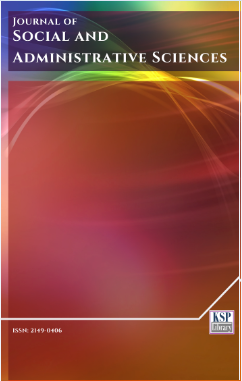Improvement teacher Professional Qualifications in Lithuania and Entrepreneurship
Abstract
The article analyzes the professional development of teachers Lithuania, proposed new form of teacher internships, teacher development concept, entrepreneurship. Professional training for teachers is required in order to update the teachers of local and national priorities and initiatives being; update their knowledge, understanding and skills in pedagogy, curriculum, use of new technologies in teaching areas. In addition, effective professional learning takes place when teachers work with each other to share practices and learn together. Effective professional training is when: it is a long-term and planned; it is clearly the results expected to be achieved in professional education; it is directly needed for a specific and important teacher, and / or school and takes into account the existing knowledge and experience; it is based on the experience of action and exploration; it is held in conjunction with others; it is based on the best available data on education and training, and is headed by experienced specialists.
Keywords. Teacher, Teachers' Qualifications, Competence, Professional training, Professional development of teachers, Entrepreneurship education.
JEL. I21, I22, I24.
References
Dačiulytė, R., Dromantienė, L., Indrašienė, V., Merfeldaitė, O., Smalskys S., Penkauskienė, D., Prakapas, R., & Railienė, A. (2012). Teacher training model. Research report. Vilnius. 6-17.
Dautaras J., & Rukštelienė N. (2006). Lifelong Learning motivation: teachers' attitude. Education: Science Works. 83, 74-79.
Duoblienė L. Bulajeva T., & Stonkuvienė I. (2008). General education programs and the use of standards / utility planning and organization of the school curriculum. Available online: http://www.smm.lt/svietimo_bukle/docs/tyrimai/sb/BP Tyrimo_Ataskaita. pdf
European Commission Enterprise Directorate-General. (2002). Final report of expert group ‘Best Procedure’ project on education and training for entrepreneurship.
European Commission Education and Culture Directorate. (2004). Lifelong learning policy development. The interim report. 2004th
European Commission. (2008). Entrepreneurship in higher education, especially in non-business studies: Final Report of the expert group. Available online: http://ec.europa.eu/enterprise/policies/sme/promotingentrepreneurship/education-training-entrepreneurship/higher-education/index_en.htm (accessed on 5 May 2015).
Gedvilienė, G., & Laužackas R. (2010). General education teacher training needs. Scientific study.
Gibb, A.A. (2013). Developing the Entrepreneurial University of the Future. Key Challenges, Opportunities and Responses. OECD, Paris.
Guskey, T., R., (2004). Professional development evaluation. Vilnius: Garnelis.
Joller-Graf, K. Didaktik des integrativen Unterricht. Available at: http: //www.disertationen. unzich.ch/2005/joller/diss.pdf.
The Link, R. (2013). Teacher competencies permanent change. Review of scientific works. Social Sciences, Education (07 s).
Laužackas R. (2005). Vocational education and training methodology: monograph. Kaunas: VMU. 331.
Loucks-Horsley, S. (1995). What the professional developer / designer does. Paper Presented at the Education Development Center's Conference for Professional Development Team for the 25 Statewide Systemic Initiatives, Baltimore, MD.
Martišauskienė, E. (2009). Teachers' approach to teaching competencies resolution. Act Theory of Careers, 88-101.
Ministry of Education Republic of Lithuania. (2012). Order No. V-899 of May 30. Teacher training concept.
Othman, N., Othman, N.H., & Ismail, R. (2012). Impact of Globalization on Trends in entrepreneurship. Education in Higher Education Institutions. International Journal of Trade, Economics and Finance, 3(4), 267-271.
Roe Odegard, I. K. (2004). Entrepreneurship in education in Norway. Available at: http://www.regjeringen.no/upload/KD/ vedlegg/Grunnskole/Entrepreneurshipin Education in Norway..pdf.
Pedagogical development center (2015). Long-term teacher training internship opportunities for study methodology.
Smith, A.M. (2008). Adult educators' practices of informal learning model. Monograph. Vilnius.
DOI: http://dx.doi.org/10.1453/jsas.v2i2.261
Refbacks
- There are currently no refbacks.
....................................................................................................................................................................................................................................................................................................................................... Journal of Social and Administrative Sciences - J. Adm. Soc. Sci. - JSAS - www.kspjournals.org
ISSN: 2149-0406
Editor: editor-jsas@kspjournals.org Secretarial: secretarial@kspjournals.org Istanbul - Turkey.
Copyright © KSP Library




